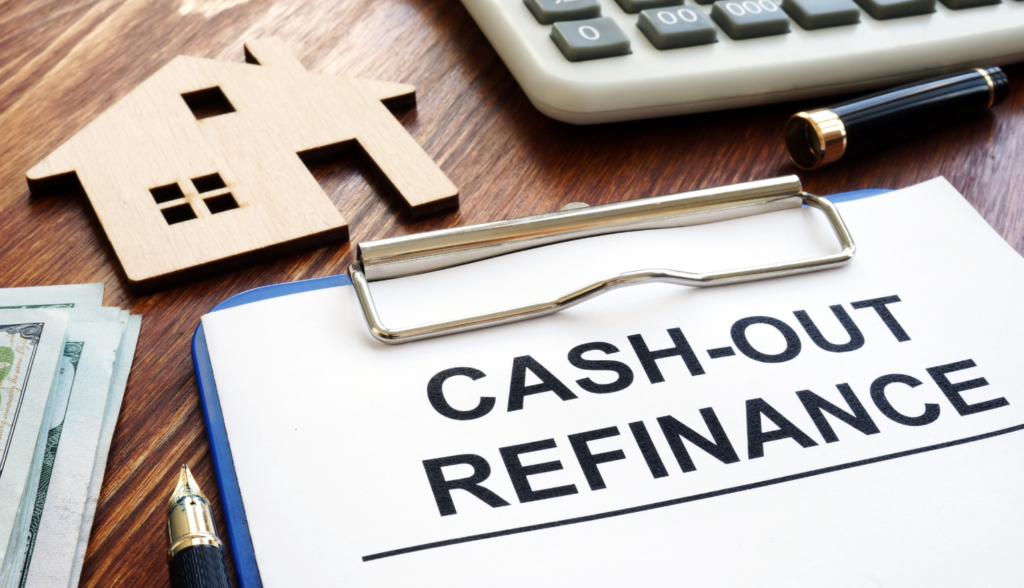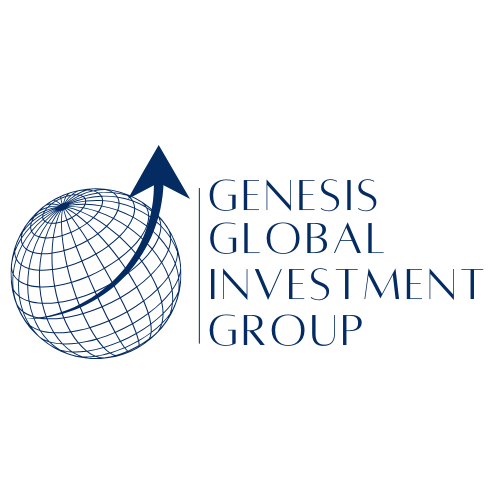
Cash-Out Refinance
Cash-out refinancing in commercial real estate allows borrowers to replace their existing loan with a new one for a higher amount than what is currently owed, receiving the difference as cash. This strategy helps property owners or business owners access the equity built up in their commercial property for various financial needs.
Considerations Before Choosing Cash-Out Refinancing
- Current Interest Rates – Ensure the new interest rate is favorable compared to your existing loan. Typically 8%-12%.
- Loan Terms – Assess the repayment period and ensure it aligns with your financial goals.
- Lender Requirements – Check eligibility criteria such as credit score, DSCR, and LTV limits.
- Property Value – Confirm a recent appraisal supports the required loan amount.
- Use of Funds – Plan how the funds will be utilized to maximize business growth or financial stability.
- Potential Prepayment Penalties – Verify if your existing loan has fees for early payoff.
- Closing Costs – Consider the total refinancing costs, including legal, appraisal, and origination fees.
- Impact on Cash Flow – Ensure the new loan payments fit within your business’s financial projections.
Potential Risks & Considerations
⚠️ Higher Loan Amount & Debt – Increased loan balance means higher long-term repayment obligations.
⚠️ New Loan Costs – Appraisal fees, closing costs, and possible prepayment penalties on the old loan.
⚠️ Lender Requirements – Lenders often require strong financials, a solid Debt Service Coverage Ratio (DSCR), and a Loan-to-Value (LTV) ratio under 75-80%.
- Dedicated Client Support
- Competitive Rates & Terms
- Tailored Financial Solutions
- Fast & Easy Application Process
- Access to a Broad Lender Network
- Financial Expertise You Can Trust

How Does Cash-Out Refinancing Work?
New Loan Issued – A lender provides a new loan based on the property’s current market value.
Old Loan Paid Off – The previous loan balance is cleared using the new loan funds.
Cash Disbursement – The borrower receives the difference between the new loan amount and the previous loan balance as cash.
For example, if a commercial property is worth $2 million, and the existing loan balance is $1 million, a lender may approve a 75% Loan-to-Value (LTV) refinance, or $1.5 million. The borrower gets $500,000 in cash after paying off the old loan.
Common Uses for Cash-Out Refinancing
Expanding a business – Funding new locations, hiring, or purchasing equipment.
Property improvements – Renovations, upgrades, or maintenance.
Investing in new properties – Using equity to acquire additional real estate.
Debt consolidation – Paying off higher-interest debts to improve cash flow.
Working capital needs – Covering operational expenses or unexpected costs.
Key Benefits of Cash-Out Refinancing
✅ Access to Capital – Utilize built-up equity for business growth or investments.
✅ Lower Interest Rates – Refinance at a lower rate compared to alternative financing.
✅ Improved Loan Terms – Extend loan duration for lower monthly payments.
✅ No Restrictions on Use – Unlike SBA or specific business loans, cash-out funds can be used flexibly.
We specialize in cash-our refinancing across all 49 states. Our competitive rates, flexible terms, and quick approval process are designed to help you succeed. Whether you’re a seasoned investor or new to the market, we’ll work with you to structure a loan that fits your project’s unique requirements.
Contact Us Today Ready to fund your next flip? Reach out to Genesis Global Investment Group for expert guidance and fast funding. We’re here to help you maximize your investment potential! Apply Now
Cash-Out Refinance FAQ's
How much cash can I take out?
Most lenders allow a Loan-to-Value (LTV) ratio of 65-80%, meaning you can borrow up to 80% of the property's current value, minus your existing loan balance.
What are the typical interest rates for cash-out refinancing?
Rates vary based on market conditions, borrower financials, and loan terms. However, they are usually higher than traditional long-term financing options (typically 8%-12%)
Can I do a cash-out refinance with bad credit?
Yes, but options may be limited to hard money or private lenders with higher interest rates and lower LTV limits.
Are there any restrictions on how I use the cash?
No, but lenders prefer the funds to be reinvested in business growth or real estate improvements.
How long does the cash-out refinance process take?
Typically 30-90 days, depending on the lender, required documentation, and property appraisal.
Will a cash-out refinance affect my taxes?
Cash received is generally not taxable, but interest payments on the new loan may be deductible. Consult a tax advisor for details.
What if my property has declined in value?
If your property’s value is lower than expected, you may not qualify or receive less cash than anticipated.
Can I refinance an SBA loan with a cash-out option?
SBA 7(a) and 504 refinancing programs have cash-out options but require the funds to be used for business-related expenses.
What are the closing costs for cash-out refinancing?
Expect to pay 2% of the loan amount in closing costs, including appraisal, title insurance, and legal fees.
Can I use a cash-out refinance to pay off personal debt?
Some lenders may allow it, but it’s generally recommended to reinvest in your business or property for financial stability.
%
Rates as low as 8% to 12%
$ K
Loans from $75K to $5M+
%
Up to 85% for Purchase and Rate & Term Refinances, Up to 75% for Cash Out Refinances
YR
Fixed/Adjustable 5, 7, 10-year
GGIG Commercial Loan Mortgage Calculator
Your Results:
Save results:
| Period | Date Payment | Opening Balance | Monthly Principal | Monthly Interest | Closing Balance |
|---|

